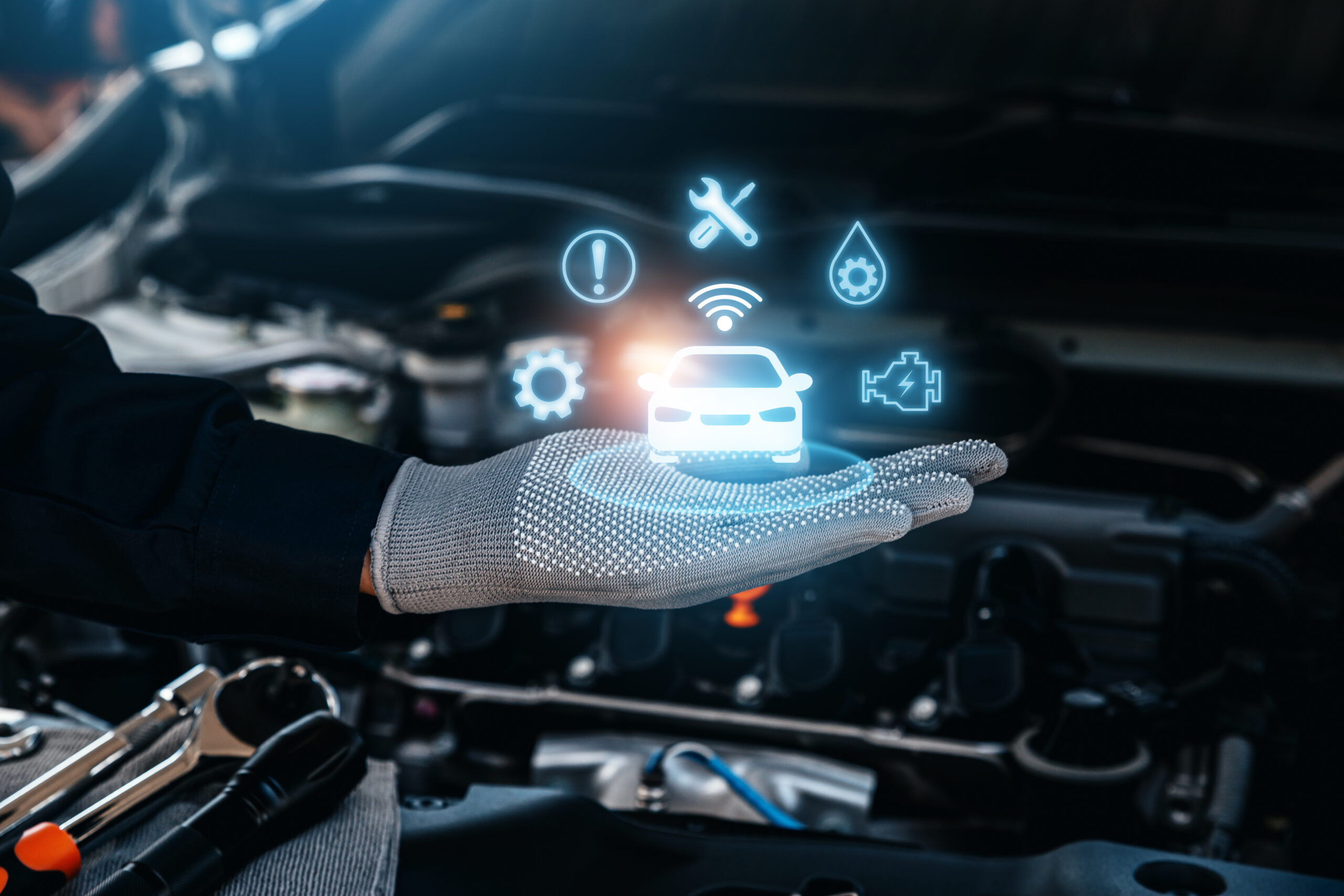This article was first published in the August 2024 Edition of FleetDrive.
Fleet maintenance is experiencing a significant shift thanks to digitalisation and advanced technologies. At the recent Queensland Professional Development Forum, Eden Shirley, Founder & CEO of AutoGuru, shared his insights on this transformation. Here, he highlighted emerging trends, challenges, and opportunities for the sector.
Digital tools are now revolutionising proactive maintenance strategies, enhancing safety and compliance, and addressing the shortage of skilled technicians.
Navigating Challenges and Seizing Opportunities
Several emerging trends and their corresponding challenges were discussed. Insights from industry experts like Richard Cruddace, Director Fleet Partner Solutions at CustomFleet ANZ, and Barry Pryce, Tech Cofounder & CTO at AutoGuru, were particularly enlightening.
Eden explained that digitalisation in fleet management allows for more proactive maintenance strategies. By leveraging data, fleet managers can make quicker and more informed decisions, potentially reducing downtime and maintenance costs.
Data-driven insights also help fleets navigate the rising cost of maintenance and find cost-effective solutions. Improved data accuracy enables fleet operators to better manage their budgets and anticipate expenses.
When it comes to safety and compliance, enhanced training and reporting systems are improving safety standards in fleet operations. Advanced digital tools also help manage recalls and maintenance responsibilities more effectively.
A key challenge in fleet maintenance is the shortage of skilled technicians and increasing wait times for repairs. However, digital platforms are streamlining processes and providing better access to maintenance services, helping to address these concerns.
The Rise of EVs and Hybrid Vehicles
As electric vehicles (EVs) become more common, they bring new challenges and opportunities for the automotive industry. One major issue is that EVs often rely on proprietary software from their manufacturers for diagnostics and repair. These closed systems can make it tough for independent repair shops to access repair and diagnosis data, complicating maintenance efforts.
Building a network of qualified repair and maintenance providers for EVs across the country is another challenge. This network needs to be as robust as the one for traditional internal combustion engine (ICE) vehicles. Additionally, managing the recycling, repair, and service of key EV components, like electric motors and traction batteries, is crucial for long-term sustainability.
There’s also uncertainty about parts availability and service networks as new OEMs enter the Australian market.
Looking ahead, the shift to EVs requires robust connectivity and infrastructure. Real-time data collection through vehicle IoT, OEM APIs, telematics, and charging infrastructure needs a solid foundation. The growing complexity of different vehicle types means smarter data systems are needed to handle varying data standards.
AI and Machine Learning in Fleet Maintenance
Machine learning and algorithms are becoming more important as the amount of data from connected vehicles increases. This data helps manage battery health, maintenance, and driver behaviour, but it’s too much for humans to analyse manually.
Eden pointed out that there’s a need for better predictive modelling, as there isn’t enough historical data to tailor these models to specific vehicle types effectively.
Furthermore, the rise of connected vehicles brings increased cyber and data privacy risks. Evolving regulations will be necessary to protect sensitive data about vehicles and drivers, ensuring that this data is collected and used securely.
Insights from the Q&A Session
During the Q&A session, several critical points were raised, providing valuable insights.
Q: How close are we to achieving the full potential of connected vehicles?
A: “I’m yet to see a vehicle on the road that has delivered on the proposed benefits, and efficiencies connected vehicles can unlock, but I don’t think we’re far off from a technology perspective. However, it could still be five years before we see significant advancements in vehicles interacting with other vehicles, traffic systems and third-party businesses. I expect that manufacturers will start building telematics into vehicles soon.”
Q: What are your thoughts on the current state of autonomous vehicles?
A: “I was completely expecting autonomous vehicles to be here by now, but they’ve got their own hurdles to cross. It makes sense to know where the vehicle is, how many kilometres it has, and if it has any faults. The technology for this is available, whether it’s from an independent telematics provider or built into the vehicle.”
Q: How do you view the impact of AI on the fleet industry?
A: “AI is just starting to show its potential in the fleet sector, and companies with access to extensive and structured vehicle operations and maintenance data sets are leading this space. As AI technology advances, the automotive industry will benefit, especially in predictive maintenance and data analysis.”
Q: What is the primary concern for fleet managers regarding vehicle maintenance?
A: “Fleet managers are most concerned about vehicle safety, availability and utilisation and are motivated to reduce downtime. . They prefer quicker service, even at a higher cost especially in remote areas.”
Q: How does data influence decision-making in the fleet industry?
A: “Structured fleet maintenance data such as vehicle specifications, service and repair times, labour and parts pricing, as well as telematics and fault codes enable a granular analysis of signals and trends in real-time. This combined with dealership location and availability, enable fleet controllers to to make informed decisions, better manage downtime and control costs.”
Q: What do you think about the future of AI and tech in fleet management?
A: “The future of AI and technology in fleet management is exciting. We’re only scratching the surface now. Advancements in AI will significantly optimise fleet operations and decision-making. Companies leading this innovation are shaping the future of the industry.”
Final Thoughts
The integration of digital technologies and AI holds significant promise for overcoming existing challenges and unlocking new opportunities.
While the rise of electric vehicles and connected technology introduces complexities, it also paves the way for more efficient and predictive maintenance strategies.
Ongoing advancements in machine learning, data analysis, and cybersecurity will play a crucial role in shaping the future of fleet management.
Did you find this article interesting? Click the ‘heart’ button above to give it a ‘like’!


















